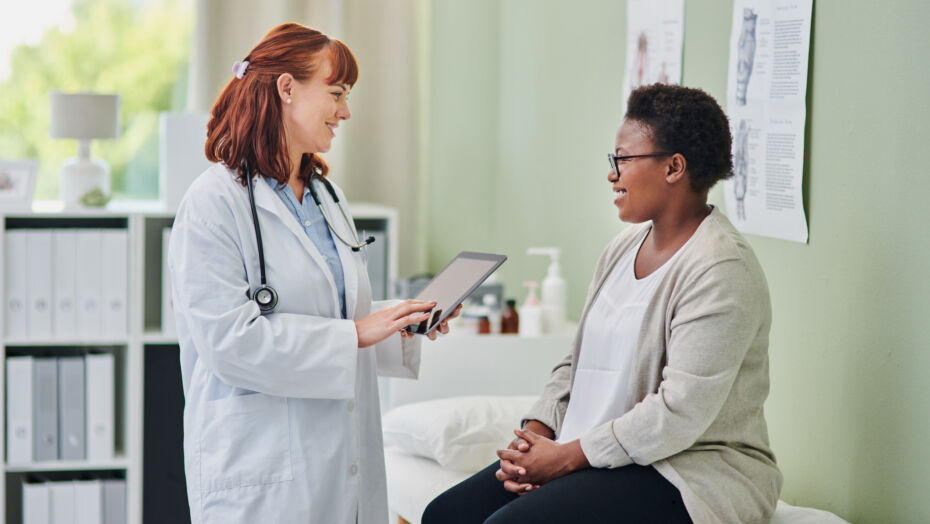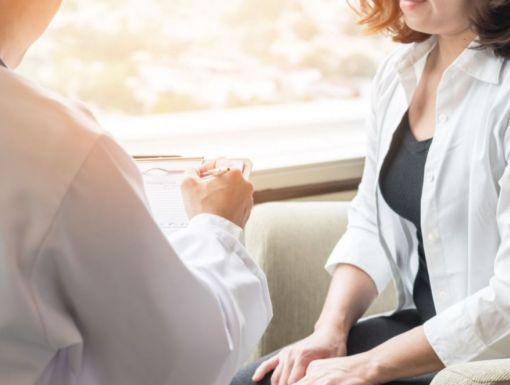
Ovarian Cysts: What Are They and How Do You Get Them?
Finding out you have a cyst on one or both of your ovaries might be unexpected, but it is often a common and treatable condition and knowing about it is the first step toward taking care of your health. Ovarian cysts are common, especially in women of reproductive age, which is typically between 15 to 49. In most cases, they cause no symptoms and go away on their own within a few weeks or months, often without any need for treatment.
However, in certain situations, cysts may be something to monitor. Cysts may grow larger, rupture or show abnormal changes, which can cause pain or other serious symptoms
What is an ovarian cyst?
An ovarian cyst is a fluid-filled sac that forms in or on the surface of an ovary. Most cysts are benign (non-cancerous) and may form as part of your monthly menstrual cycle. These are known as functional cysts, and they usually go away on their own.
What are some common types of ovarian cysts?
- Follicle cysts: Each month, your ovaries release an egg inside a sac called a follicle. If the follicle doesn’t release the egg, it can continue growing and form a cyst. These typically resolve within one to three menstrual cycles.
- Corpus luteum cysts: After the egg is released, the follicle should shrink and dissolve. If it doesn’t, fluid can build up inside, forming a corpus luteum cyst. These may cause pain if they bleed or twist the ovary but often go away within a few weeks.
- Cystadenomas: These fluid-filled cysts develop on the surface of the ovary. They can grow large and cause the ovary to twist, leading to pain and restricted blood flow.
- Dermoid cysts: Usually present from birth, dermoid cysts form from the cells created during early development and may contain hair, skin or even teeth. While generally harmless, they can cause problems if they rupture or twist the ovary.
- Endometriomas: These develop in people with endometriosis, a condition where uterine tissue grows outside the uterus. When this tissue attaches to the ovaries, cysts can form.
- Polycystic ovary syndrome (PCOS): Women with PCOS often have multiple small cysts on their ovaries. PCOS can affect fertility and cause irregular menstrual cycles.
What are the symptoms of ovarian cysts?
Many women with ovarian cysts experience no symptoms at all. However, if a cyst grows, ruptures, or twists, it can cause some symptoms you should be aware of:
Pelvic pain, especially during your period
Abdominal bloating or swelling
Pain in the lower back or thighs
Breast tenderness
Nausea or vomiting
Unexplained weight gain
Pain during sex
Irregular vaginal bleeding, or delayed menstrual cycle
Call your doctor if you experience sudden, severe pain or symptoms of a ruptured cyst or ovarian torsion (twisting).
What increases your risk of ovarian cysts?
Several factors can increase your risk of developing cysts, including:
Pregnancy: Some cysts form early in pregnancy to support the embryo. They usually resolve, but if they don’t, they may need to be removed.
Endometriosis: A chronic condition where tissue in the lining of the uterus (endometrium) grows outside the uterine cavity. This condition can cause cysts on the ovaries.
Hormonal imbalances: Medications to stimulate ovulation may trigger the development of cysts.
Pelvic infections: If infections spread to the ovaries, cysts may form.
Previous ovarian cysts: A personal history increases your risk of future cysts.
Can ovarian cysts be cancerous?
Most ovarian cysts are benign, which means non-cancerous. However, some may become cancerous (or malignant), especially in postmenopausal women or those with a family history of ovarian, breast, uterine or colon cancer.
It is difficult to routinely screen for ovarian cancer, but you should speak with your doctor if you fall into a higher-risk group or notice unusual symptoms. It’s also important to maintain your yearly gynecological visit for a well-woman exam.
Do ovarian cysts affect fertility?
In most cases, ovarian cysts don’t interfere with fertility. However, cysts caused by PCOS or endometriosis can make it harder to conceive. If you’re trying to get pregnant, your doctor can recommend treatment options to manage these conditions and improve fertility outcomes.
How are ovarian cysts treated?
Treatment depends on the type, size, and symptoms of the cyst. Most functional cysts go away on their own without treatment.
Common treatment options include:
Ongoing medical supervision: Monitoring the cyst over time with follow-up imaging.
Oral contraceptives: Help regulate hormones and prevent new cysts by taking oral birth control.
Pain relief: Over-the-counter pain medications like NSAIDs can help manage discomfort.
Surgery: If a cyst is large, painful or appears suspicious, your doctor may recommend surgical removal through a laparoscopy, a minimally invasive surgery technique that uses a thin tube with a camera (laparoscope) to visualize the inside of the abdomen.
When should you see a doctor about ovarian cysts?
We encourage you to be proactive about your health. Make an appointment if you notice symptoms like pelvic pain, bloating or unusual bleeding. Keep up with yearly gynecological exams, which can help detect ovarian cysts early.


-d10df263c2.jpg)
